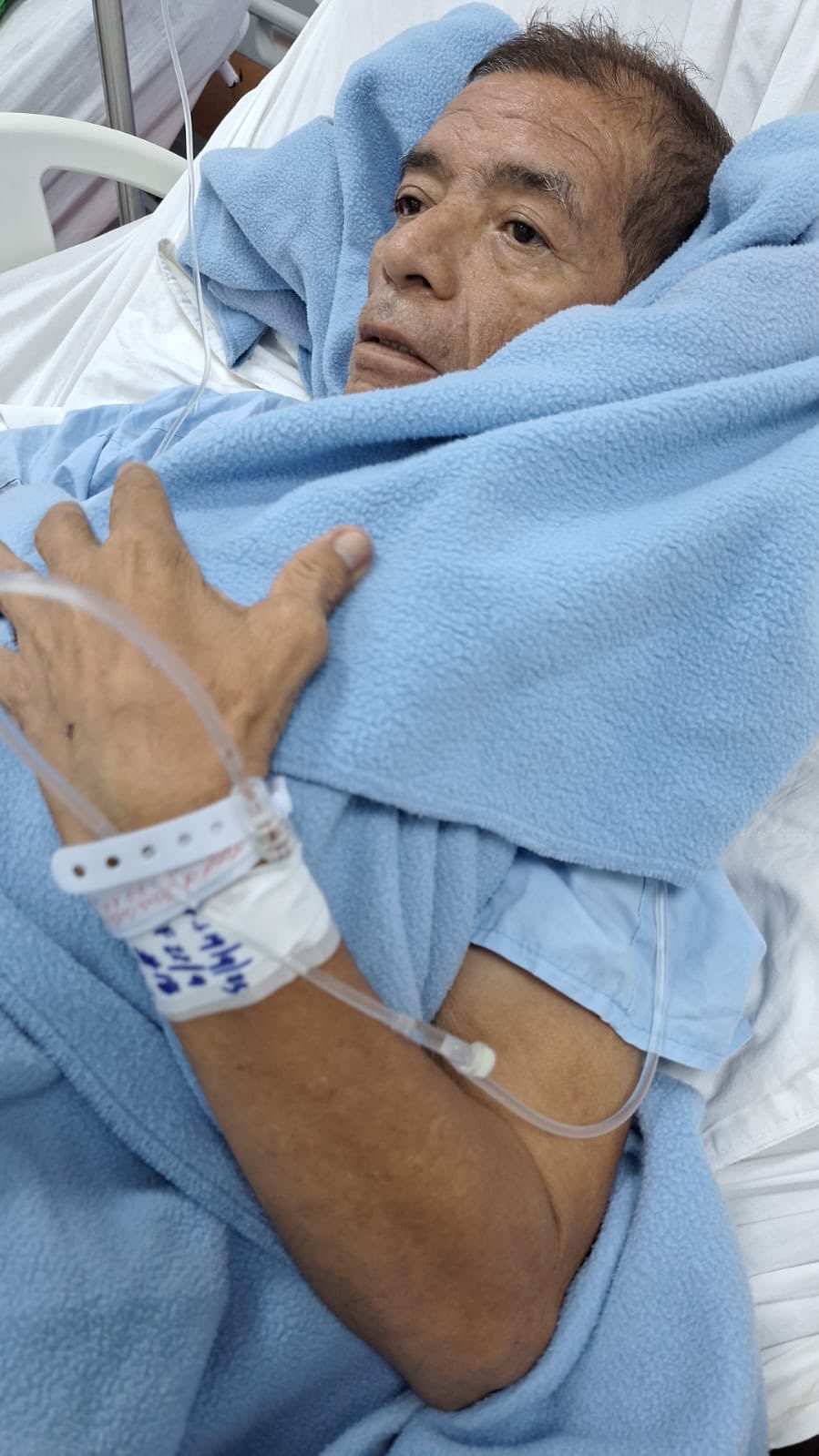In the general cemetery of Apastepeque, San Vicente, lies the grave of Manuel de Jesús Cortez Mira, who served as director of the Centro Educativo Joaquín Rodezno (Joaquín Rodezno Educational Center) and the Centro Escolar República de Chile (Republic of Chile School), both in San Salvador. There, family and friends remember him as a person devoted to education and reiterate that no justification existed for his incarceration.
“He dedicated his life to his studies. He earned his degree in San Miguel and began practicing his profession, eventually becoming the director of institutions. He also served on the evaluation committee, the Tribunal Calificador de la Carrera Docente del Ministerio de Educación (Teaching Career Review Board of the Ministry of Education), and was a man of profound commitment,” recounts a relative who prefers to remain anonymous for fear of reprisals.
Mira was arrested by police on August 23, 2024. Following an anonymous call, they came to take him into custody at his workplace. He was held in the Usulután penitentiary for one year and was released from prison on August 28, 2025. Although he appeared cheerful, his friends and family recall that he emerged in a grave state of health.
Mira told them he was mistreated in prison and that the care packages his family delivered with food, vitamins, and other basic supplies never reached him. He said they gave him only toothpaste and a toothbrush. As for his daily meals, he said that many times he was given tortillas and a handful of salt, and that water was not always provided.
“That compromised his health. He was diabetic and asked for medicine, but instead, he was given beatings at midnight. They roused them to bathe at 4:00 in the morning and then made them exercise. When he was released, he was malnourished, felt weak, and was dehydrated,” affirms another relative of the teacher.
Upon his release from prison, his health was severely deteriorated, and he was admitted to the Hospital Nacional Zacamil in San Salvador. He died on September 19 of this year, at the age of 68.
“For us, this has been a devastating blow. It was not what we expected for a person devoted to his studies; the way they treated him in prison was like an animal, and the medical care he received was no different—they viewed him as any stray dog. When he died, the doctors told us nothing. They operated on his stomach and left him with a hole to relieve himself, but they made that decision without consulting the family; they never asked us or informed us,” his family states.
LPG: https://www.laprensagrafica.com/elsalvador/En-prision-lo-trataron-como-un-animal-20251102-0049.html
“En prisión lo trataron como un animal”
En el cementerio general de Apastepeque, San Vicente, se encuentra la tumba de Manuel de Jesús Cortez Mira, quien en vida fuera director del Centro Educativo Joaquín Rodezno y del Centro Escolar República de Chile, ambos de San Salvador. Ahí familiares y amigos le recuerdan como una persona entregada a la educación y reiteran que no había una motivación para encarcelarlo.
“Dedicó su vida al estudio. Sacó su carrera en San Miguel y comenzó a ejercer su profesión hasta ser director de instituciones. También estuvo en el comité evaluador (Tribunal Calificador de la Carrera Docente del Ministerio de Educación) y fue alguien de mucha entrega”, relata un familiar que prefiere el anonimato por temor a represalias.
Mira fue capturado por agentes de la Policía el 23 de agosto de 2024. Tras una llamada anónima lo fueron a traer cuando estaba en su trabajo. Estuvo internado en el centro penal de Usulután por un año y salió de prisión el 28 de agosto de 2025. Si bien parecía alegre, sus amigos y familiares recuerdan que salió en grave estado de salud.
Mira les dijo que en prisión no lo trataron bien, que los paquetes que entregaba su familia con alimentos, vitaminas y otros insumos básicos no llegaron nunca a sus manos. Les aseguró que solamente le daban la pasta de dientes y un cepillo dental. De la comida que recibía a diario, les aseguró que les daban tortillas y un puñado de sal en muchas ocasiones y el agua no siempre estaba en el menú.
“Eso complicó su salud. Él era diabético y pedía medicina, pero lo que le daban eran golpes a la medianoche. Los levantaban a bañarse a las 4:00 de la mañana y después los ponían a hacer ejercicios. Cuando salió estaba desnutrido, se sentía decaído, no había ingerido agua”, afirma otro familiar del docente.
Al salir de prisión, su salud estaba muy deteriorada y fue ingresado en el Hospital Nacional Zacamil, en San Salvador. Falleció el 19 de septiembre de este año, a los 68 años de edad.
“Para nosotros ha sido un golpe duro. No era lo que esperábamos de una persona entregada al estudio; la forma en la que lo trataron en prisión fue como a un animal, igual la atención médica que recibió, lo vieron como cualquier perro. Cuando falleció, los médicos no nos dijeron nada. Le hicieron una operación en su estómago, le dejaron un agujero para hacer sus necesidades, pero no decidieron eso con los familiares, nunca nos preguntaron ni nos notificaron”, expone su familia.
LPG: https://www.laprensagrafica.com/elsalvador/En-prision-lo-trataron-como-un-animal-20251102-0049.html

